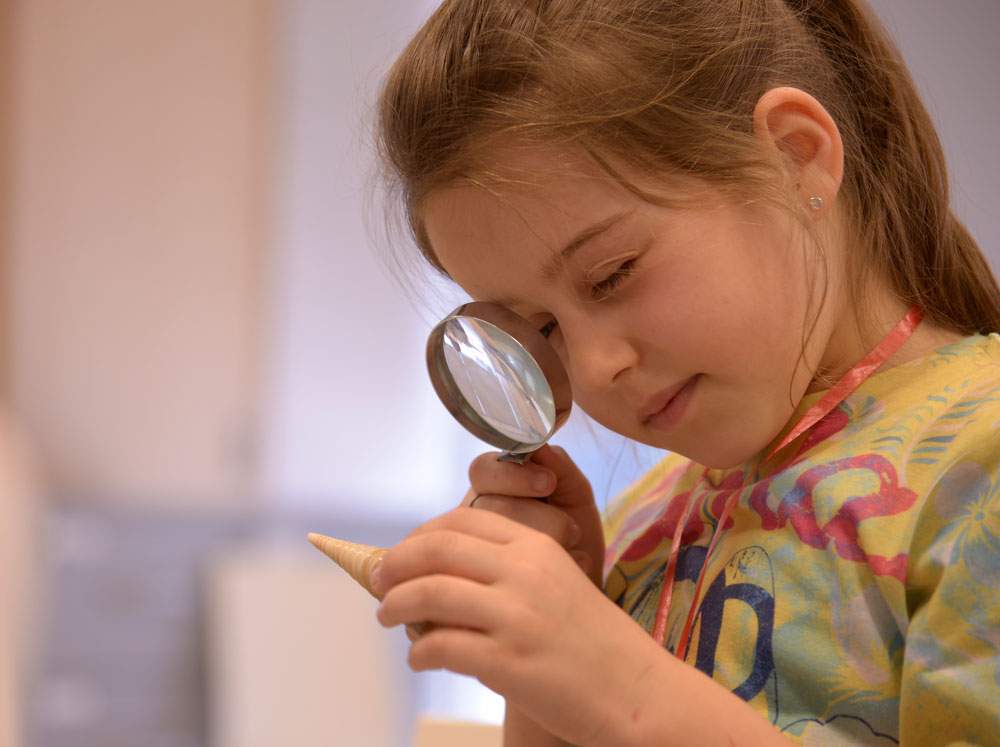With MUSE remote school field trip and backyards and parks become laboratories
If a school field trip in this time of health emergency is difficult or almost impossible to organize, MUSE - Trento’s Museum of Science proposes a school field trip at a distance, combining scientific expertise and new communication strategies. So it will be the museum that brings science and curiosity to school through live video lectures, virtual tours of the museum, cues for hands-on activities, online tutoring and themed workshops.
You can learn firsthand about the habits of bears, wolves and other animals of the Alps; talk about oceans and climate change around the NOAA (National Oceanic and Atmospheric Administration) interactive sphere; venture to the top of a glacier to understand that time is running out before they melt and that all of us, in our own small way, can do something for the future of the planet: these are just some of the Live from the Halls experiences that MUSE is offering for the school world, to accompany students in discovering the wonders of scientific knowledge.
“The historical moment we are living in,” explains Monica Spagolla, referent of the MUSE Education Area, “offers an additional opportunity to keep the relationship between the museum and the school world alive and dynamic. Hence the proposal of new educational formats that allow culture and museums to become part of the everyday life of students. All without upsetting the style that has made MUSE’s educational activities unique and engaging over the years.”
The new educational project aimed at primary and secondary schools Live from the Halls includes fourteen themes, including environmental sustainability and climate change. The activity “Oceans and Climate” explores through simple experiments the role of oceans in the delicate global climate balance, “Live from the High Peaks” takes a closer look at the health of glaciers, “Plant and Adapt!” is the activity dedicated to plant biodiversity, “Walking the Alps. Strategies for Survival and Large Carnivores” reflects on the different adaptations of alpine animals including bears and wolves, not forgetting lessons dedicated to the world of dinosaurs, the solar system and art at the time of our prehistoric ancestors. For kindergartens and preschools, the Il MUSE video call activity was born: a guided, personalized and interactive tour that takes children on a discovery of a specific museum theme.
Moreover, with the Il MUSE for and on the territory project, courtyards become astronomy laboratories, public parks become privileged observatories for learning from nature: the museum makes easily accessible educational activities available to schools in Trentino. Interventions offered at school facilities or in open-air spaces indicated by the schools, such as parks and gardens in the territory. Topics to be explored in the classroom or outdoors are varied and include, for example, the activity “Discovering the Sun,” to allow in-depth knowledge of the physical-astronomical characteristics of our star in an “open-air laboratory” with the possibility of using the professional instruments of a real astronomical observatory. “How to Recognize Plants,” on the other hand, is a workshop to better understand the classification system of living organisms. Students will be put to the test: they will have to establish the criteria on the basis of which to classify the plant world and the use of dichotomous keys as a tool for identifying species observed in public parks or in the woods behind school.
For info: www.muse.it
 |
| With MUSE remote school field trip and backyards and parks become laboratories |
Warning: the translation into English of the original Italian article was created using automatic tools. We undertake to review all articles, but we do not guarantee the total absence of inaccuracies in the translation due to the program. You can find the original by clicking on the ITA button. If you find any mistake,please contact us.





























